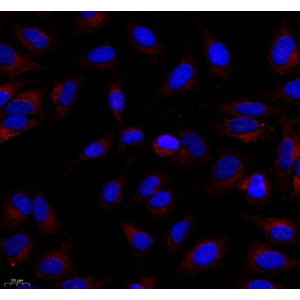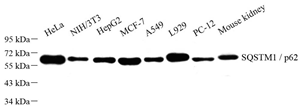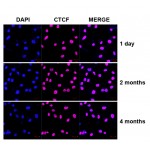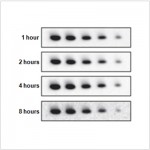Anti-SQSTM1/p62 Rabbit pAb (100 μl)
| Reactivity: | H,M,R & H,M |
| Applications: | WB & IHC/IF |
| Host Species: | Rabbit |
| Clonality: | Polyclonal |
| Full Name: | P62 rabbit polyclonal antibody |
Gene Name: | Sequestosome-1 |
Synonyms: | SQSTM1, A170, OSIL, PDB3, ZIP3, p60, p62, p62B, FTDALS3, Sequestosome 1, NADGP, DMRV |
Uniprot ID: | Q13501, O08623, Q64337 |
Immunogen: | Recombinant protein corresponding to Mouse P62 |
Isotype: | IgG |
Purity: | Affinity purification |
Subcellular location: | Late endosome, Nucleus, PML body, Lysosome, Endoplasmic reticulum, Cytoplasm, Autophagosome, Sarcomere |
Predicted MW. | 48 kDa |
Observed MW. | 62 kDa |
Product Usage Information
Applications | Species | Dilution | Positive Sample |
WB | Human, Mouse, Rat | 1:500-1:1500 | kidney |
ICC/IF | Human, Mouse | 1:1000-1: 2000 | HeLa, NIH/3T3 |
Background
Autophagy receptor that interacts directly with both the cargo to become degraded and an autophagy modifier of the MAP1 LC3 family . Along with WDFY3, involved in the formation and autophagic degradation of cytoplasmic ubiquitin-containing inclusions (p62 bodies, ALIS/aggresome-like induced structures). Along with SQSTM1, required to recruit ubiquitinated proteins to PML bodies in the nucleus. May regulate the activation of NFKB1 by TNF-alpha, nerve growth factor (NGF) and interleukin-1. May play a role in titin/TTN downstream signaling in muscle cells.
Images
| Western blot analysis of SQSTM1 p62 (GB11239-1) at dilution of 1: 500 |
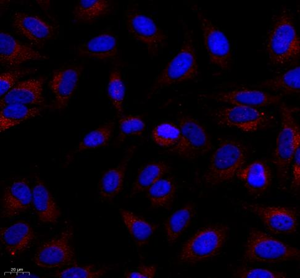 | Immunocytochemistry analysis of 4% paraformaldehyde-fixed Hela cell untreatd using p62 (GB11239-1) at dilution of 1: 1000 |
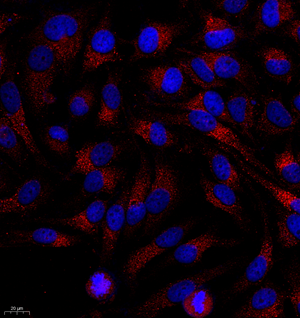 | Immunocytochemistry analysis of 4% paraformaldehyde-fixed Hela cell with chloroquine treated using p62 (GB11239-1) at dilution of 1: 1000 |
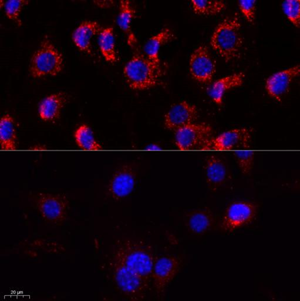 | Immunocytochemistry analysis of 4% paraformaldehyde-fixed NIH/3T3 cell with chloroquine treated (above) and untreatd (below) using P62 (GB11239-1) at dilution of 1: 2000 |
Storage
| Storage | Store at -20 °C for one year. Avoid repeated freeze/thaw cycles. |
| Storage Buffer | Liquid in PBS containing 50% glycerol, 0.5% BSA and 0.02% sodium azide. |

